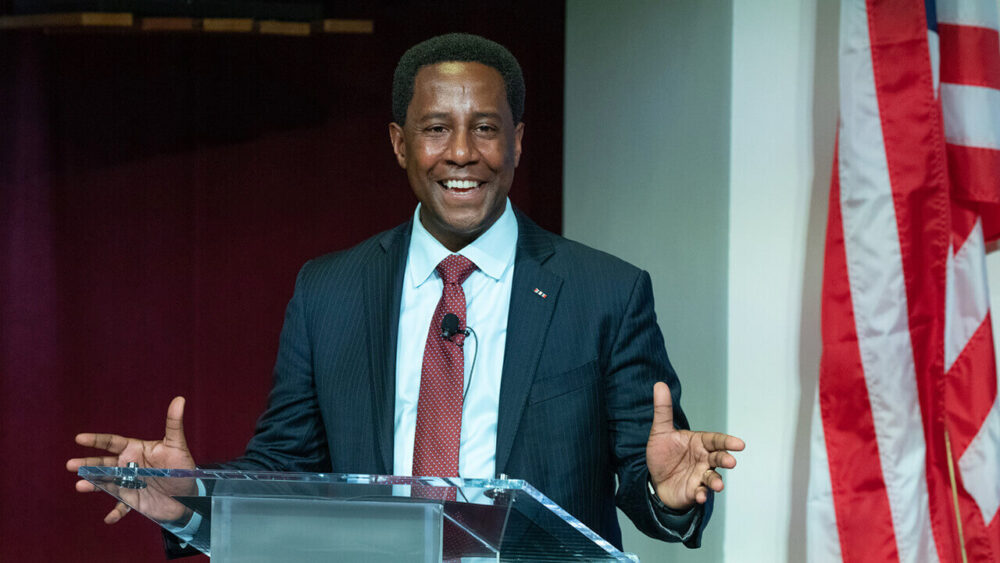
Nominations open for the 2026 Goldsmith Awards
Newsletter

Our weekly roundup of news found at the intersection of media, politics, policy and technology, from the Shorenstein Center and from around the web.
Environmental Justice? Unjust Coverage of the Flint Water Crisis. A new paper by Derrick Z. Jackson, Joan Shorenstein Fellow (fall 2016), Boston Globe essayist, and a climate and energy writer for the Union of Concerned Scientists, examines the failure of national media outlets to respond to the Flint water crisis in an urgent manner, as well as biases in coverage.
Juliette Kayyem: ‘We Just Took Two Big Steps Towards Collusion.’ For Juliette Kayyem, Belfer Lecturer in International Security and Shorenstein Center affiliate, Donald Trump Jr.’s emails “provide evidence that the Trump campaign was willing to keep secrets and receive assistance from the Russians.”
President Trump’s Tweets And ‘The Bully Pulpit On Steroids.’ Nicco Mele, Shorenstein Center director, discusses the Shorenstein Center’s studies on media coverage of Trump, press freedom, and more on WBUR.
Health Care Debate: A Really Big Story, Except When It Isn’t. The Shorenstein Center’s intern at The New York Times, Avantika Chilkoti, examines the frequency of news coverage of the GOP healthcare bill–and Thomas Patterson, Bradlee Professor of Government and the Press, observes that crafting the bill behind closed doors is a way to avoid press attention, and therefore pressure from outside groups.
Health reporters: Secrecy, speed, and Twitter changed coverage of GOP bill. Trudy Lieberman, spring 2001 fellow, interviews reporters who covered the Affordable Care Act, and finds that the GOP’s “covert and rushed” approach to healthcare reform has made it more difficult for journalists to “provide clear consequences of the GOP bill for their audiences.”
Documentary Explores Flaws In How The Media Cover Presidential Campaigns. Dan Kennedy, spring 2016 fellow, reviews a new film, Democracy through the Looking Glass: Politics and Media in the Post-Truth Era, which features Nicco Mele.
Startups are co-opting Donald Trump’s digital playbook to push progressive politics in 2018. Nicco Mele says that interest in political startups, driven by opposition to Trump, is “a natural part of the political cycle…Some will find the right timing, message and execution, and others will disappear.”
Mandatory Digital Privacy Labels: One Way to Protect Consumer Data. HKS student Katherine Mansted writes in the Kennedy School Review that “consumers feel that they have lost control because they do not clearly understand how and when firms collect and use their personal information,” making updated privacy laws essential.
When Rising Seas Hit Home: Hard Choices Ahead for Hundreds of US Coastal Communities. Derrick Jackson, fall 2016 fellow, developed four case studies on coastal cities facing flooding, for a new Union of Concerned Scientists report.
Donald Trump’s warning about ‘western civilisation’ evokes holy war. Walter Shapiro, spring 2005 fellow, argues that “the Trump-Bannon worldview depicts Europe and America reeling from a second Muslim invasion,” as alluded to in the president’s recent speech in Poland.
Sign up to receive Media and Politics Must Reads in your inbox each week. Also connect with us on Twitter and Facebook for more updates.


Center News

Center News